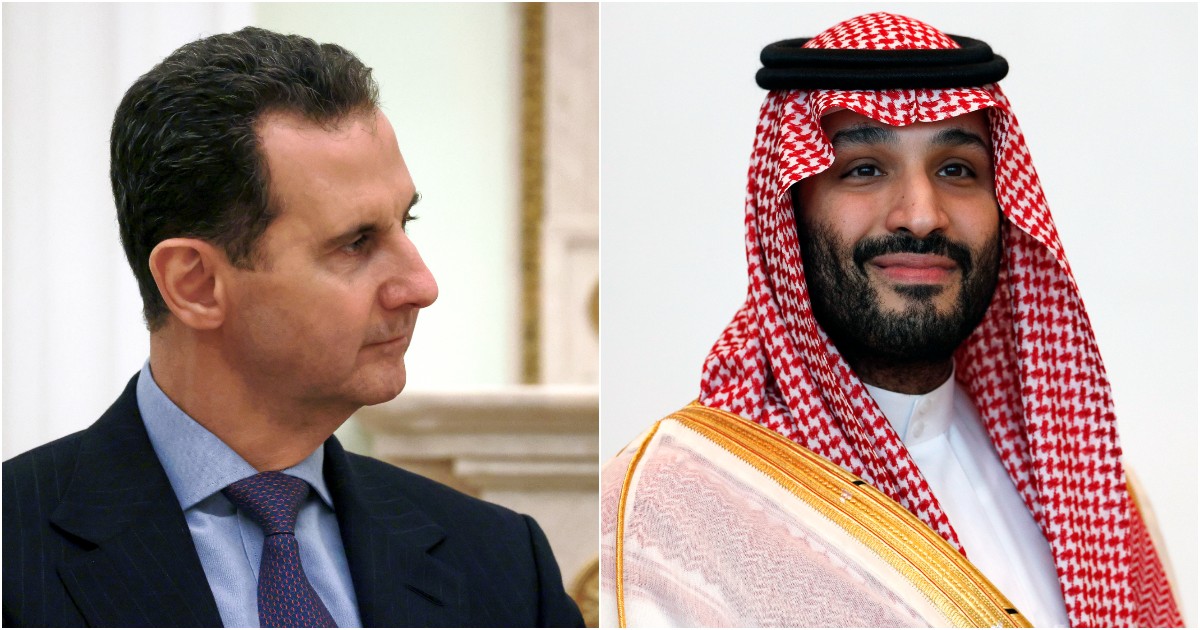by Claudia De Martino
Last May 19 was held at Jeddah a vertex of Arab League which saw, for the first time since 2011, the renewed participation of the Syrian President Bashar al-Assadrehabilitated as the legitimate representative of his country despite his primary responsibility in the civil war which has been going on for over 12 years and which to date has caused 306 thousand dead (500 thousand according to the Syrian Observatory for Human Rights), 6.7 million refugees and 13 million displaced.
Bashar al-Assad’s supposed victory is not yet complete – the province of Idliboccupied by the Syrian branch of al-Qaedastill escapes the regime – and stops militarily in direct control of 70% of the territory, but the neighboring Arab regimes believe with healthy realism that the Syrian President – confirmed for the fourth term with 95.2 votes in May 2021 – risk no more to be ousted by the opposition, is destined to remain firmly in power and must therefore be reintegrated into the Arab League.
In fact, Riyadh believes the moment has come normalization with Syria as a sign of relaxation at the regional level. A number of pragmatic considerations on regional stability have made Riyadh reach out for such a choice: Syria already appears very secluded on the international arena and is likely to get closer to the only two countries with which it maintains good relations: the Russiaits main ally in the war since 2015, to whom it leased for 49 years (through the Stroïtransgaz company) the commercial port of Tartous as a naval base, and theIranwhich supplied it with weapons and militias to defend itself, with which it recently signed a bilateral agreement for the reconstruction of the country.
In addition, Syria is considered by neighboring states to be one potential threathaving turned into a narco-state that smuggles drugs, especially the captagon – a powerful amphetamine – on the international market, exporting it above all to Jordan and the Gulf countries thanks to the porous and desert borders that divide these states.
Furthermore, the Arab states have an interest in tackling the delicate dossier of the return of the refugees Syrians, present in huge numbers in the refugee camps of Jordan e Lebanon: a return sponsored as “safe”. Finally, Mohammed Bin Salman has opted for the return of Assad’s Syria to the League to try to control an outcome considered inevitable in the long run, at the same time attempting to “snatch” Syria from regional (Iran) and international (Russia) competitors ) through the card of the “big arab family”: a family in which they increasingly dominate autocrats and military, whose main political success is the prevention and/or repression of the Arab Spring.
The official pretext was provided by the pressing need for humanitarian intervention following the February 2023 earthquake in Syria and Turkey, which caused a strong humanitarian crisis in northern Syria that the Gulf countries intend to buffer by providing material and financial aid to the refugees through cooperation with the regime, but the chosen moment could also have been identified by theSaudi Arabia to enter the international race to the reconstruction of Syria, estimated at about 400 billion dollars.
Agnes Levallois, a researcher at the Fondation pour la recherche stratégique in Paris, comments that Mohammed Bin Salman intends to establish himself as the new leader of Pan-Arabism – a new Gamal abd el-Nasser in Islamic version – at any cost, and who to this end wishes to breathe new life into the Arab League, an institution dying which, however, brings together the 22 Arab-Muslim countries, through the launch of concrete projects capable of tackling the main problems of the region, such as the climate changeperiodic refugee crises and food security.
His activism would indifferently take the form of monumental projects for the construction of technological cities in the desert – such as Noam and The Line on the Red Sea – and courageous diplomatic initiatives on the international scene, such as the invitation to the Arab League summit addressed to two personalities as distant as the Ukrainian president Zelensky and the Syrian al-Assad.
It matters little that Assad has not shown himself minimally collaborativeindeed focused his speech on the need to combat the “external interference” of third countries in regional affairs (with the strict exception of the Russian Federation), did not show no repentance against the repression of his people, nor any urgency to obtain loans and aid for the 80% of the Syrian population who currently live below the poverty line, nor did he obviously mention the fate of over 95,000 missing arrested by its security services and some 80,000 political prisoners – mainly Muslim Brotherhood – still held in its prisons.
In December 2016, during the siege of Aleppo, the then UN Secretary Ban Ki-moon he complained with dismay that the international community “collectively had abandoned the Syrian people” while the French ambassador to the UN Atlani-Dualt wondered if “Aleppo would become the tomb of the United Nations” (2016). All these solemn declarations by the political authorities were not followed by any reaction. The war in Ukraine in the heart of Europe served to to remove in the Euro-American conscience even the memory of the interminable Syrian war. The regime survived militarily thanks to Russian air intervention and Iranian troops and supplies and is now being rehabilitated by those same Arab countries forcedtheir former bitter enemies, who had set themselves up as protectors of citizens, mainly Sunnis, killed en masse by the regime.
If the last decade of Syria’s history teaches anything, it is that any regime that manages to overcome an internal crisis, even a very bloody one, by remaining in power, will not suffer any consequences for the “crimes against humanity” committedbecause this case applies only to states that lose wars.
